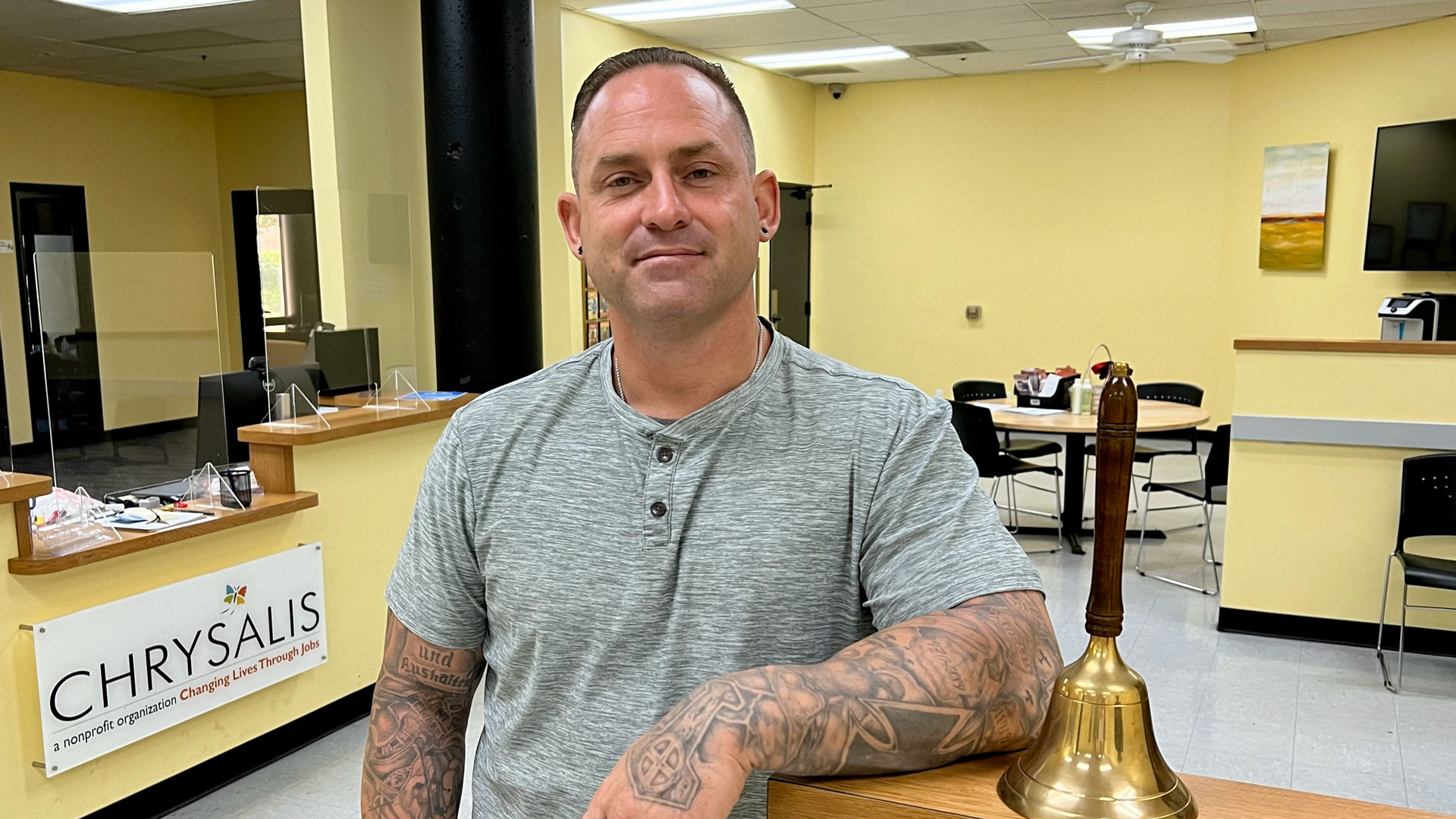When Graham was faced with a life sentence in prison at 21 years old, he thought he would never go home. His grandmother – whom he called his guiding light – had passed away while he was fighting his case. He remembers thinking, I’m done. I don’t have anything to go home to.
When Graham was faced with a life sentence in prison at 21 years old, he thought he would never go home.
With no hope for the future, Graham “dove into the culture in prison,” where he was involved in gang activity and focused on building a reputation for himself through any means necessary.
“Prison is a bunch of hurt kids trying to fight their way through every problem, and I fit right in.” He’d had a difficult childhood, experiencing abuse and neglect by his parents, as well as bullying by his peers. He learned to cope, he says, by alternating between acts of aggression and tuning everything out.
Graham brought those same habits to his time in prison and spent the first dozen years of his sentence engaging in destructive behavior. He waged an internal battle: “There was something in me that said, ‘I don’t want to do this anymore,’ but I still did it.”
Finally, he came to a point where his desire to go home motivated him to attend rehabilitative groups that facilitated healing and encouraged making different choices and creating a vision for his future.
“Prison is a bunch of hurt kids trying to fight their way through every problem.”
After he was released from prison in February 2019, the program Graham was part of referred him to Chrysalis. He came home to a changed world, both socially and technologically, and worried how his past might affect his ability to secure employment, “I was worried about all the stigmas around incarceration, around the tattoos, around what I’d done before.”
Graham remembers taking the bus to Chrysalis and being so eager to arrive that he got there before the center had opened. When it did, Graham says, “I felt immediately welcomed.” The atmosphere at Chrysalis was warm and inviting. “I didn’t feel judged coming in. And my whole life I’d felt judged.”
“I was worried about all the stigmas around incarceration…I didn’t feel judged [at Chrysalis].”
Graham’s Employment Specialist partnered with him to develop a personalized employment plan and lay out the path he wanted to take with his career. “She asked me about my experiences, and not just about where I wanted to work, but what I wanted to do.” He felt free to dream, to express his desire to work with incarcerated individuals who were struggling just like he had in the past. “They didn’t discourage that,” he says. Instead, Chrysalis always urged Graham to aim higher.
After working a transitional job with the Chrysalis Roads program maintaining our Southern California freeways, Graham found work with a moving company and then applied for a position that aligned with his vision: a transformational coach with an organization that worked inside prisons, reentry programs, group homes, and schools. Chrysalis prepared him for this moment. “My biggest fear was the work gap,” he says. But his Employment Specialist had helped him translate the work he’d done while serving time into skills he could include on his resume. He also received coaching on how to address his experience in the justice system during a job interview.
At Chrysalis, Graham felt free to dream, to express his desire to work with incarcerated individuals.
Today, Graham works as a Coach Coordinator with Success Stories, leading incarcerated individuals through a 12-week curriculum that addresses the systemic social factors that can be the root of harmful behavior. In his role, he guides participants to build new paradigms for viewing the world and their place in it.
Recently, he watched 20 people graduate from the program at the same prison where he’d spent most of his sentence. “There was a degree of redemption, kind of an amends made for the harm I’d done in those environments,” he says. “Being able to do this kind of work is the most powerful thing I’ve ever done in my life.”
“Being able to do this kind of work is the most powerful thing I’ve ever done in my life.”
To this day, Graham’s grandmother’s guiding light lives on within him and shines through his loving and supportive family members. His transformation is a testament to the positive impact one person can make in our community, and Chrysalis is grateful to have been part of his journey.
